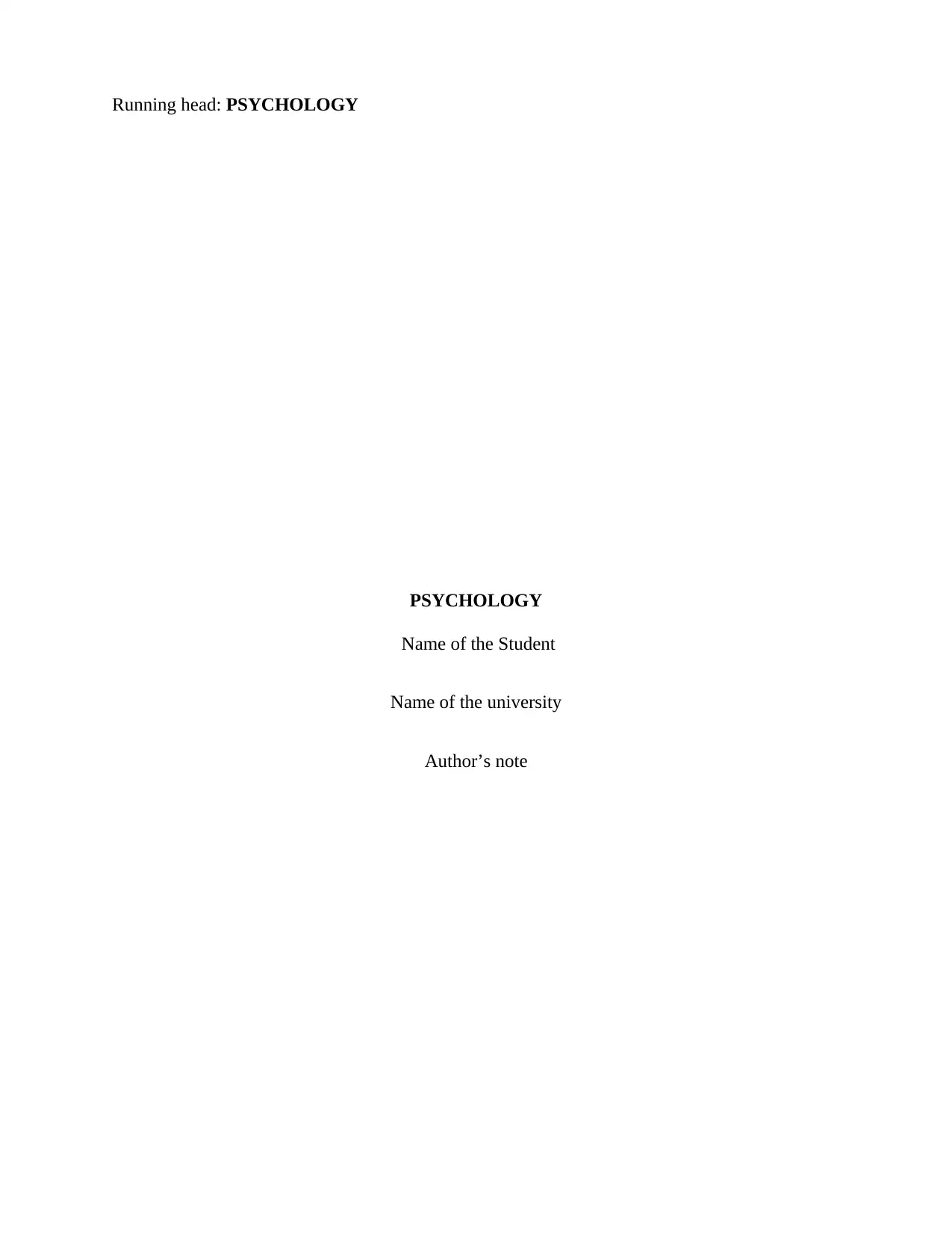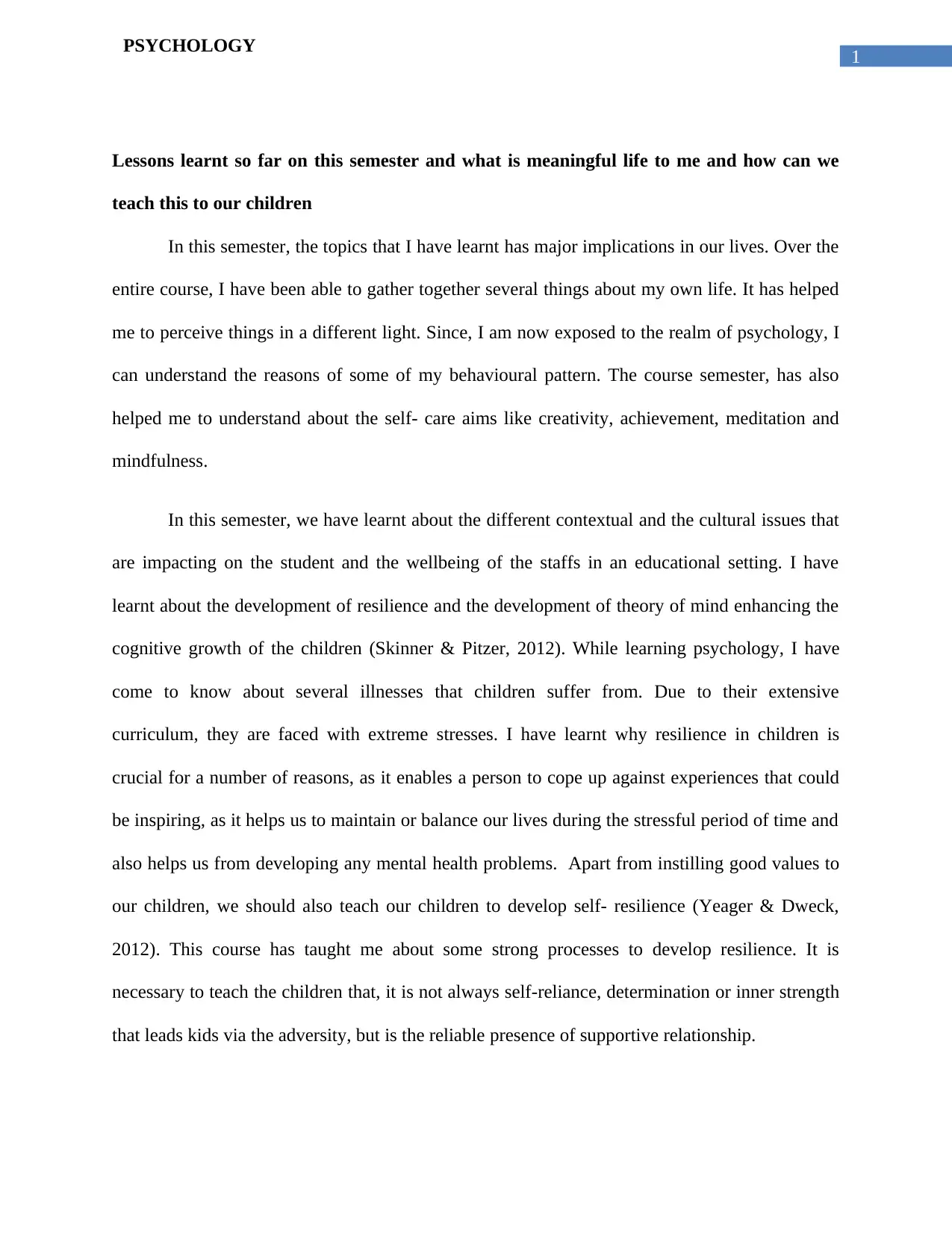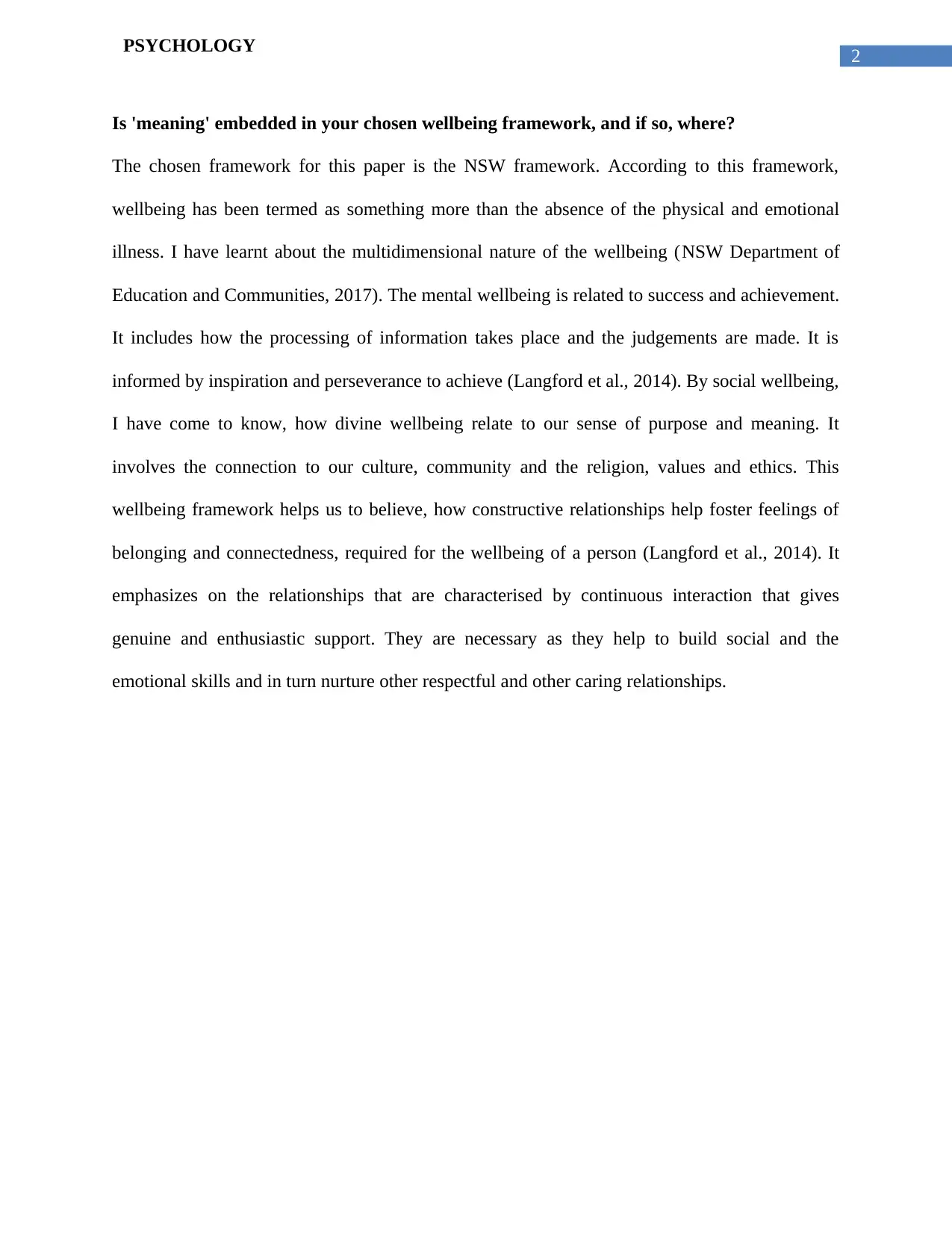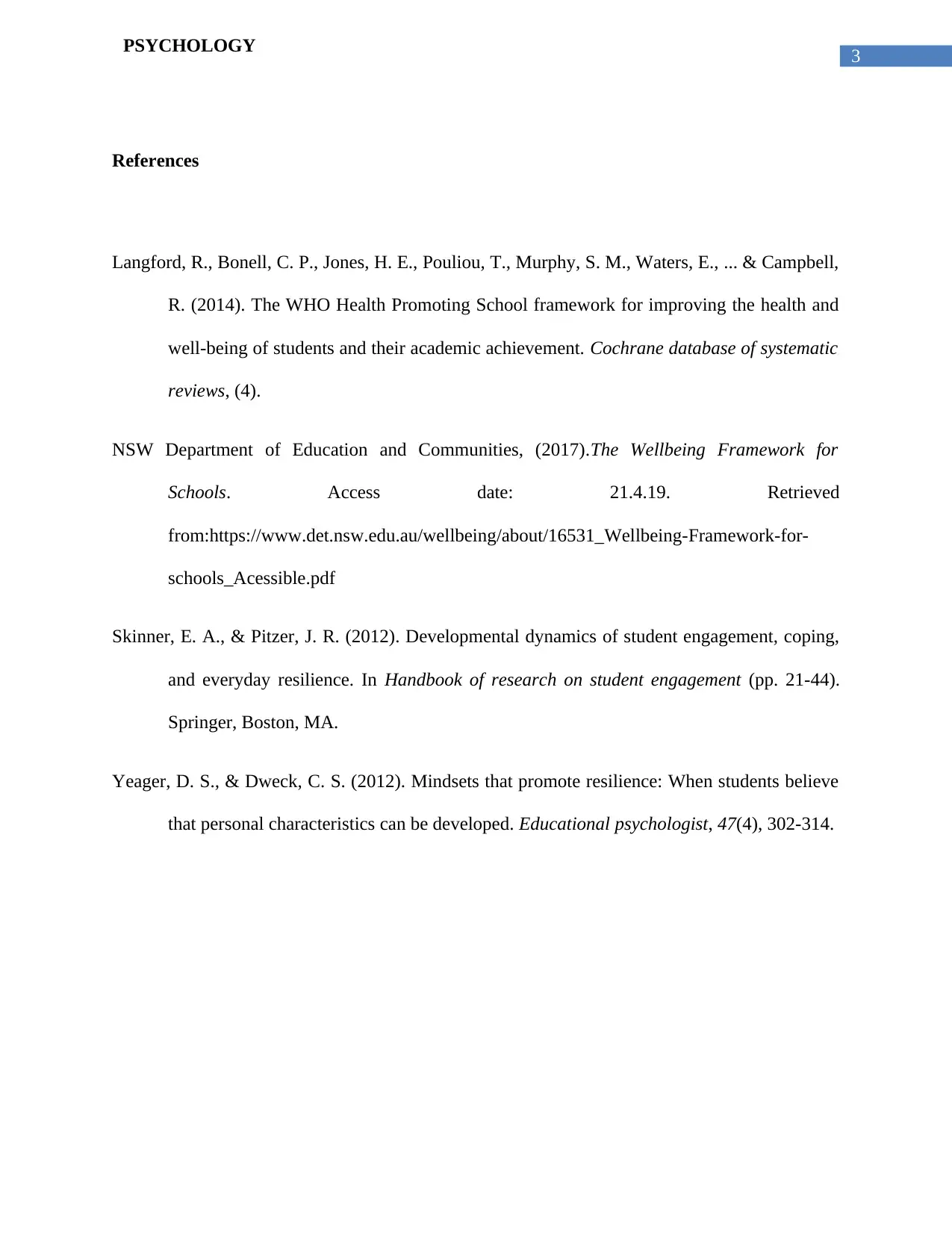Psychology Essay: Semester Lessons, Wellbeing and Meaningful Life
VerifiedAdded on 2023/01/23
|4
|770
|38
Essay
AI Summary
This psychology essay reflects on the student's learning experiences throughout the semester, focusing on the implications of psychology in everyday life. The essay explores the development of self-care practices like creativity, achievement, meditation, and mindfulness, along with the impact of contextual and cultural issues on students and staff wellbeing within an educational setting. It highlights the importance of resilience in children, the development of their theory of mind, and the challenges they face, emphasizing the need to teach children about resilience and meaningful relationships. Furthermore, the essay examines the NSW wellbeing framework, discussing the multidimensional nature of wellbeing, its connection to success, social wellbeing, and the importance of constructive relationships. The essay references key academic sources, providing a comprehensive overview of the topics covered.
1 out of 4











![[object Object]](/_next/static/media/star-bottom.7253800d.svg)